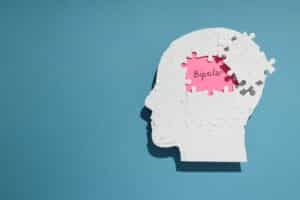Most of us have heard of post-traumatic stress disorder (PTSD) affecting military veterans. Traumatic experiences like war can lead to this serious condition.
But it is not only veterans who suffer the long-term effects of trauma.
A less common version of this condition is called complex PTSD. People who struggle with complex PTSD face the symptoms of PTSD. But they also struggle with a range of other symptoms specific to complex PTSD.
If you or a loved one is dealing with complex PTSD, you might struggle with a sense of hopelessness. You might avoid triggering situations or feel overwhelmed by emotional flashbacks.
But these feelings are common symptoms that all people with this condition experience.
If you’re researching complex PTSD recovery, this is the article for you. This post will cover signs and symptoms as well as options for complex PTSD treatment.
Keep reading to find out more about the journey to recovery.
What is Complex PTSD?
So, what is the difference between PTSD and complex PTSD?
Most people with PTSD experienced a traumatic event or situation. But people with complex PTSD experienced trauma that lasted for a long time. In many cases, this trauma happens over a period of many years.
Long-term trauma like this could include:
- Being abused or neglected as a child
- Being exposed to domestic violence or abuse
- Being held as a war prisoner
- Being a victim of sex trafficking
Situations like these have a few things in common. First, the trauma happens over a long time period.
Second, people experiencing this trauma cannot escape. They are powerless to leave their situation.
Over time, the stress caused by such a difficult situation can lead to complex PTSD. Let’s talk about some complex PTSD symptoms now.
Complex PTSD Symptoms
Remember, people who have complex PTSD will also struggle with the symptoms of PTSD. Some of these may include:
- Traumatic flashbacks or nightmares
- Difficulties trusting other people
- An overwhelming sense of fear or panic
- Feeling on edge all the time
In addition to these symptoms, people with complex PTSD might experience:
- A negative sense of self-worth or feelings of guilt
- Difficulties forming close personal relationships
- Dissociative events where you feel separated from your body
- Trouble managing or controlling emotions
If you experienced long-term abuse, it can be hard to trust the world or the people in it. You might feel like no one else could ever understand you.
Remember, these feelings are symptoms of a serious condition. Anyone who went through your experience would likely feel the same way.
No matter what you went through in the past, you can achieve a brighter future. One of the best ways to work towards this is by understanding your symptoms and learning how to manage them.
Understanding Emotional Triggers
Complex PTSD triggers can feel like they’re coming out of nowhere. One moment you’re feeling fine, and the next you’re having an anxiety attack.
PTSD survivors might experience physical triggers. For example, a firework display could trigger a veteran’s memory.
Emotional triggers can be just as powerful as physical triggers.
If you have complex PTSD, you might have a hard time when things don’t go according to plan. A sudden change in work schedules or school deadlines could leave you in a tailspin.
When you experience long-lasting trauma, it’s normal to feel powerless. In the future, feeling out of control in one area can be an emotional trigger.
This might remind you of the overwhelming emotions you felt during trauma.
People with complex PTSD might be triggered when they feel vulnerable, anxious, angry, or lonely. Minor emotional reactions can take you back to traumatic moments in your past.
The good news? You can learn to understand and cope with all your triggers.
By understanding complex PTSD, you are one step closer to complex PTSD recovery. You have the power to identify triggers and learn to improve your emotional reactions.
Complex PTSD Treatment Options
There are many mental health programs that can help you recover from complex PTSD.
One of the most common options for complex PTSD treatment is talk therapy. Psychotherapy gives you a chance to process your trauma.
A licensed therapist can help you understand how to target negative thoughts and replace these with more uplifting self-talk. Therapy can also help you improve your personal and romantic relationships.
In addition to therapy, many people find medication helpful for dealing with complex PTSD. Antidepressant medications can help support better brain health.
Of course, not every medication will be effective for you. Don’t be discouraged by this process!
Many people have to try a few antidepressants before they find the right fit. This is a normal process. Your psychiatrist can help guide you through the ins and outs of medication for complex PTSD.
No matter what treatment option you’re looking for, it’s crucial to find a supportive mental health treatment center. The staff at Southern California Sunrise Recovery Center are committed to supporting every client.
Many of us experience difficulties in life. But we don’t have to be defined by what happens to us. We all have the power to shift the narrative.
At Sunrise Recovery, you will find a team ready to help you write the next chapter of your bright future.
Take Your First Step Towards Healing
If you or a loved one is dealing with complex PTSD, it’s important to reach out for professional support. No one should have to go through this alone.
Sunrise Recovery supports each client through every step of the healing journey.
No two journeys are ever the same. For personalized, top-tier support, get in touch with Sunrise Recovery today! We can’t wait for you to join us on the path to better health.







